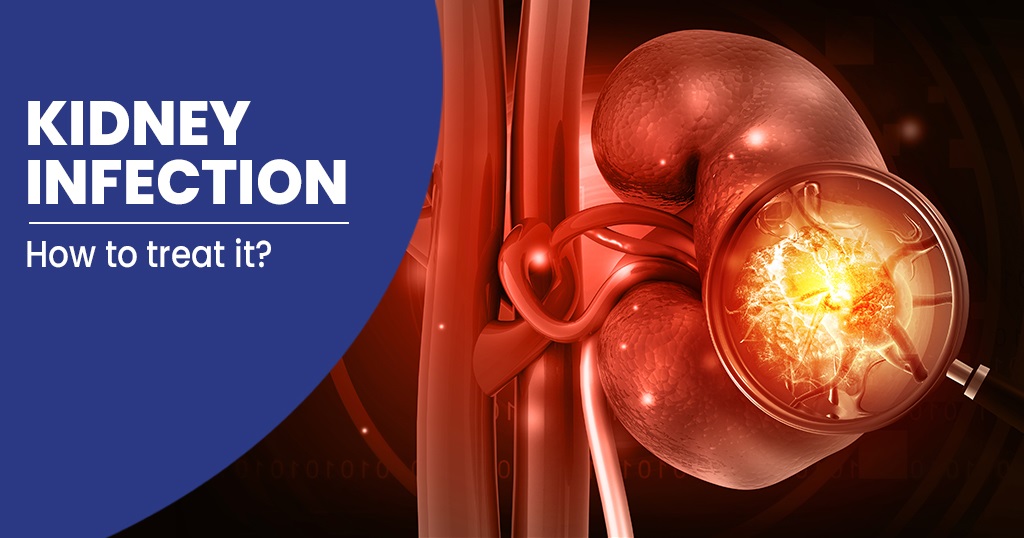- 28-Mar-24
One kind of infection that results from bacteria or viruses is kidney infection, also known as pyelonephritis. Toxins and waste materials are eliminated from the blood by the kidneys, which are bean-shaped organs. The kidneys are susceptible to infection because of their connection to the bladder and other urinary tract organs. Infections in these organs have the potential to spread to the kidneys if left untreated. If treatment is delayed, the condition may become serious.
Kidney Infection Symptoms
A kidney infection can spread very quickly, frequently in a day or even a few hours. Typical indications of a kidney infection could be:
- Fever: A kidney infection often causes a high fever, typically over 100.4°F (38°C). The fever may be accompanied by chills, sweating, and shaking.
- Back or Side Pain: Pain from a kidney infection is typically felt in the back, beneath the ribs, on either side of the spine. The pain could be dull and aching, or it could be sharp and severe. Additionally, it might radiate to the groin or lower abdomen.
- Urinary Symptoms: Urinating frequently, having a constant urge to urinate, or feeling uncomfortable or burning while urinating are all possible symptoms. You might notice bloody or hazy urine.
- Nausea and Vomiting: Some people with kidney infections may experience nausea, vomiting, or both. These symptoms can be particularly severe if the infection is causing significant discomfort.
- Fatigue and Weakness: Kidney infections can cause general feelings of fatigue, weakness, and malaise. You may feel more tired than usual and have difficulty carrying out your daily activities.
- Other Symptoms: In some cases, a kidney infection can cause other symptoms such as a rapid heart rate, confusion, or mental changes. People with other medical conditions or those with severe infections are more likely to experience these symptoms.
It's important to note that symptoms can vary from person to person, and not everyone with a kidney infection will experience all of these symptoms. If you suspect you have a kidney infection, it's important to see a healthcare provider for proper diagnosis and treatment.
Kidney Infection Treatment
Antibiotics are usually used in the treatment of kidney infections, or pyelonephritis, in order to eradicate the bacterium that is causing the infection. The severity of the infection and the particular bacteria involved will determine the antibiotic to be used and the length of treatment. Even if you begin to feel better before you finish the prescribed course of antibiotics, it's crucial to adhere to your doctor's orders. Treatment for a kidney infection may involve the following in addition to antibiotics:
- Pain Medication: Over-the-counter or prescription pain relievers can help manage the pain and discomfort associated with a kidney infection.
- Fluid Intake: Drinking plenty of water and other fluids can help flush out the bacteria from your urinary tract and keep you hydrated.
- Rest: Your body can fight off the infection and heal more quickly if you get lots of rest.
Hospitalization might be required in extreme circumstances or if problems develop. To guarantee successful treatment, intravenous (IV) antibiotics and fluids may be given in the hospital.
Integrated Medical Care Hospital (IMC Hospital):
The multi-specialty IMC Hospital was founded in collaboration with DHA Lahore with the goal of revolutionising healthcare and introducing the concept of completely integrated treatment and services. You can locate the Best Infertility Specialist right here. Visit Integrated Medical Care Hospital (IMC Hospital) today and make an appointment.

 Map
Map










